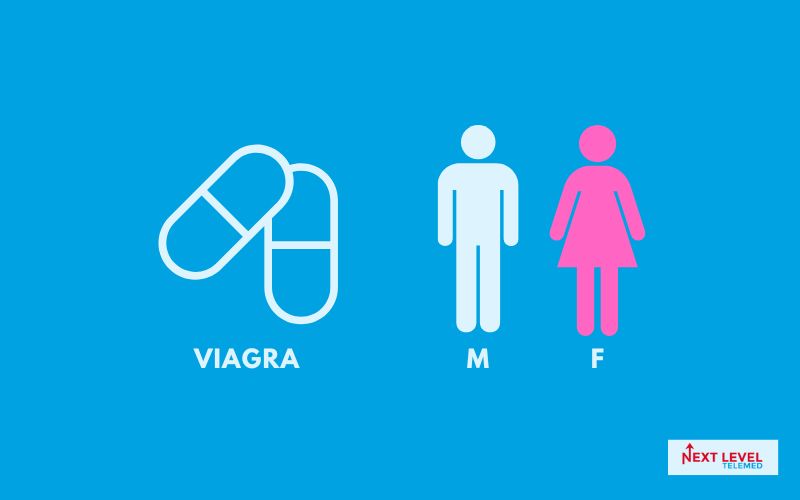This policy describes the types of information Next Level Telemed or
NextLevelTelemed.com ("Next Level Telemed," "we," "our," or "us") may
collect from you or that you may provide when you visit
NextLevelTelemed.com (our "Website") with the following summary
information about you that Next Level Telemed collects through the
Site, how that information is collected; how that information is used;
who will have access to that information; and Next Level Telemed
security measures for protecting that information.
This policy does not apply to information collected by us offline or
through any other means, including on any other website operated by
Next Level Telemed or any third party; or any third party, including
through any application or content (including advertising) that may
link to or be accessible from or on the Website.
Next Level Telemed first interest is protecting your privacy. Next
Level Telemed provides this policy to explain the type of information
we collect and to inform you of the specific practice and or
guidelines that protect the security and confidentiality of your
personal information, including health information that individually
identifies you, or protected health information Please read this
policy carefully. If any term in this policy is unacceptable to you,
please do not use the Website or provide any personal information. By
accessing or using this Website, you signify your acknowledgment of
this privacy policy. This policy may change from time to time and your
use of the Website after we make changes is deemed to be acceptance of
those changes, so please check the policy periodically for updates.
This Privacy Policy applies to information collected through the Site.
Please Read this Privacy Policy COMPLETELY.
When you create, register or log into an account through the Site you
are automatically accepting and agreeing to the most-recent version of
this Privacy Policy, as well as Next Level Telemed Terms and
Conditions.
By visiting, or using the Site, you automatically accept and agree to
the most-recent version of this Privacy Policy, Next Level Telemed
Terms and conditions., and your continuing visit, access or use of the
Site reaffirms your acceptance and agreement in each instance.
As used herein, the term "personal information" means information that
would allow someone to specifically identify you or contact you
physically or online (e.g., your name, physical address, telephone
number, email address, social security number); and the term
"non-personal information" means any information other than personal
information that Next Level Telemed may collect from you.
CHILDREN UNDER THE AGE OF 13
Our Website is not intended for children under 18 years of age and
included is a special caution for under the age of 13, and Next Level
Telemed does not knowingly collect or use any personal information
from children under the age of 18. No one under age 18 much less 13
may provide any information to or on the Website. By using the Website
you confirm that you are not under the age of 13. If we learn we have
collected or received personal information from a child under 13, we
will delete that information. If you believe we might have any
information from or about a child under the age of 13, please contact
us at [email protected] or 1950 Lee Rd, Suite 208 Winter
Park FL 32789 to request access to, correct, or delete any personal
information that you have provided to us.
Site . Please submit any such request ("Request for Removal of Minor
Information") to any one of the following:
By mail: Next Level Telemed LLC., attn.: PRIVACY 1950 Lee Rd, Suite
208 Winter Park FL 32789"Removal of Minor Information."
By email: [email protected], with a subject line of
"Removal of Minor Information."
For each Request for Removal of Minor Information, please state
"Removal of Minor Information" in the email or letter subject line,
and clearly state the nature of your request;
Categories of Information Collected
Next Level Telemed may collect personal and non-personal information
about you through the Site
Categories of Information Collected Through the Site. The categories
of personal and non-personal information collected from you through
the Site might include your:
Name
Login information for the Site (e.g., username, password, security questions and answers);
Home contact information (e.g., mailing address, email address,
telephone number);
Gender;
Date of birth;
Electronic signature;
otographic or video image to the extent provided by you to Next Level Telemed
Medical history, including the results of any questionnaires, surveys,
information requests, interviews, or other documentary, text, video,
or audio interactions related to the provision of health services
Billing, payment or shipping information (e.g., payor or payee name,
checking account number, credit card number, expiration date,
verification code, accountholder name, cardholder name, billing
address, mailing address, tax ID number, billing history);
Business contact information (e.g., company, title, mailing address,
email address, telephone number, facsimile number, tax ID number);
and/or
Computer, mobile device, and/or browser information (e.g., IP address,
mobile device ID information, operating system, connection speed,
bandwidth, browser type, referring/exist web pages, web page requests,
cookie information, hardware attributes, software attributes);
Third-party website, network, platform, server and/or application
information (e.g., Facebook, Twitter, Instagram);
Usage activity concerning your interactions with the Site and/or
third-party websites, networks, platforms, servers or applications
accessed through the Site (e.g., number of clicks on a page or
feature, amount of time spent on a page or feature, identity of
third-party websites, networks, platforms, servers and applications
being access through the Site.
Usage activity concerning products and services provided to or accessed by you on or through the Site (e.g., viewing habits, viewing preferences, viewing history, title selections, favorites, streams, downloads, demographics and closed captioning selections).
Transactional information (e.g., offers, orders, pricing, payments, purchaser, seller, item information, shipping terms, comments,
ratings, feedback and instant messages and/or other communications made within or through the Site);
Information about third parties that you refer to Next Level Telemed
(e.g., name, email and/or other contact information, relationship);
Information set forth in the Site's and online account registration,
subscriber profile, and/or
Statements or content (e.g., comments, videos, photographs, images),
and information about such statements or content, which you submit or
publish on or through the Site, or which are accessed via your public
or linked social media pages (e.g., Facebook, Twitter, Instagram).
Categories of Other Information Collected From Your Mobile Device. If
you use your mobile device to visit, access or use the Site, then
additional categories of personal and non-personal information
collected from you through the Site might include:
Your name associated with your mobile device;
Your telephone number associated with your mobile device;
Your geolocation;
Your mobile device ID information;
With your express consent, your contacts and/or contact information (e.g., names, telephone numbers, physical addresses, email addresses, photos) stored on your mobile device; and/or With your express consent, information about third-party software applications on your mobile device (including, without limitation, general software apps, downloadable software apps, social media apps).
>How Information Is Collected
Next Level Telemed might collect personal and non-personal information
from you when you visit, access or use the Site; when you register
with or subscribe to the Site; when you register for or subscribe to
the products and/or services of Next Level Telemed online through the
Site or, if applicable, other areas of the Site or the ; when you
"sign in," "log in," or the like to the Site; when you allow the Site
to access, upload, download, import or export content found on or
through, or to otherwise interact with, your computer or mobile device
(or any other device you may use to visit, access or use the Site) or
online accounts with third-party websites, networks, platforms,
servers or applications (e.g., your online social media accounts, your
cloud drives and servers, your mobile device service provider); or
whenever Next Level Telemed asks you for such information, such as,
for example, when you process a payment through the Site, or when you
answer an online survey or questionnaire.
In addition, if you or a third party sends Next Level Telemed a
comment, message or other communication (such as, by way of example
only, email, letter, fax, phone call, or voice message) about you or
your activities on or through the Site , then Next Level Telemed may
collect any personal or non-personal information provided therein or
therewith.
Finally, Next Level Telemed might use various tracking, data
aggregation and/or data analysis technologies, including, for example,
the following:
Cookies, which are small data files (e.g., text files) stored on the
browser or device you use to view a website or message. They may help
store user preferences and activity, and may allow a website to
recognize a particular browser or device. There are several types of
cookies, including, for example, browser cookies, session cookies, and
persistent cookies. Cookies may record information you access on one
page of a website to simplify subsequent interaction with that
website, or to help streamline your transactions on related pages of
that website. Most major browsers are set up so that they will
initially accept cookies, but you might be able to adjust your
browser's or device's preferences to issue you an alert when a cookie
is downloaded, or to block, reject, disable, delete or manage the use
of some or all cookies on your browser or device.
Flash cookies, which are cookies written using Adobe Flash, and which
may be permanently stored on your device. Like regular cookies, Flash
cookies may help store user preferences and activity, and may allow a
website to recognize a particular browser or device. Flash cookies are
not managed by the same browser settings that are used for regular
cookies.
Web beacons, which are pieces of code embedded in a website or email
to monitor your activity on the website or your opening of the email,
and which can pass along information such as the IP address of the
computer or device you use to view the website or open the email, the
URL page on which the web beacon is located, the type of browser that
was used to access the website, and previously set cookie values. Web
beacons are sometimes used to collect advertising data, such as
counting page views, promotion views or advertising responses.
Disabling your computer's, device's or browser's cookies may prevent
some web beacons from tracking or recording certain information about
your activities.
Scripts, which are pieces of code embedded in a website to define how
the website behaves in response to certain key or click requests sent
by the user. Scripts are sometimes used to collect information about
the user's interactions with the website, such as the links the user
clicks on. Scripts are often times temporarily downloaded to the
user's computer or device from the website server, active only while
the user is connected to the Site, and deactivated or deleted when the
user disconnects from the website.
Analytic tools and services, which are sometimes offered by third
parties, and which track, measure and/or generate information about a
website's or program's traffic, sales, audience and similar
information, and which may be used for various reasons, such as, for
example, statistical research, marketing research, and content ratings
research, and conversion tracking. Examples of the analytic tools and
services which Next Level Telemed might use include Google Analytics
and Taplytics. Next Level Telemed may also use other third-party
analytic tools and services.
Please be advised that if you choose to block, reject, disable, delete
or change the management settings for any or all of the aforementioned
technologies and/or other tracking, data aggregation and data analysis
technologies, then certain areas of the Site might not function
properly.
By visiting, accessing or using the Site, you acknowledge and agree in
each instance that you are giving Next Level Telemed permission to
monitor or otherwise track your activities on the Site, and that Next
Level Telemed may use the aforementioned technologies and/or other
tracking, data aggregation and data analysis technologies.
>Use of Information Collected
Next Level Telemed may use the personal and/or non-personal information it collects from you through the Site in a variety of ways, such as, for example, to:
Fulfill your requests;
Process your payments;
Facilitate your use of the Site and/or their respective products
and/or services;
Send you communications like, for example, administrative emails,
answers to your questions and updates about the Site;
PProvide you with information about Next Level Telemed , Olympia
Pharmacy, and/or their businesses, products and services by letter,
email, text, telephone or other forms of communication;
Improve the Site, respective content, features and/or services;
Improve the products, services, marketing and/or promotional efforts
of Next Level Telemed ;
Create new products, services, marketing and/or promotions for Next
Level Telemed ;
Market the businesses, products and/or services of Next Level Telemed ;
Help personalize user experiences with the Site, and/or their
respective products and/or services;
Analyze traffic to and through the Site ;
Analyze user behavior and activity on or through the Site;
Conduct research and measurement activities for purposes of product
and service research and development, advertising claim
substantiation, market research, and other activities related to Next
Level Telemed, the Site, and/or their respective products and/or
services;
Monitor the activities of you and others on or through the Site;
Place and track orders for prescription drugs and other products on your behalf;
Protect or enforce Next Level Telemed ' rights and properties; and/or
Protect or enforce the rights and properties of others (which may include you).
Next Level Telemed reserves the right to use your personal and
non-personal information when:
Required by applicable law, court order or other governmental
authority (including, without limitation and by way of example only,
in response to a subpoena or other legal process); or
Next Level Telemed believes in good faith that such use is otherwise
necessary or advisable (including, without limitation and by way of
example only, to investigate, prevent, or take legal action against
someone who may be causing injury to, interfering with, or threatening
the rights, obligations or properties of Next Level Telemed , a user
of the Site which may include you which may include you, or anyone
else who may be harmed by such activities or to further Next Level
Telemed ' legitimate business interests).
Sharing of Information Collected
Next Level Telemed reserves the right to share your personal
information with Next Level Telemed employees, agents, administrators,
accountants, financial advisors and legal advisors; with Olympia
Pharmacy, and its employees, agents, administrators, accountants,
financial advisors and legal advisors; with Invigor Medical employed
or contracted doctors, nurses and other providers, along with
non-Next Level Telemed providers who might also provide you with
health- or healthcare-related services; with pharmacies or other
vendors that may fill your prescription drugs or other product orders;
and with those third parties who help manage, administer distribute
and/or operate the Site, and/or their respective products, services
and/or features (e.g., web hosting companies, website administrators,
support services companies, credit card or other payment processing
companies), as needed in order for them to perform such services.
Next Level Telemed does not limit the ways in which it may use or
share non-personal information because non-personal information does
not identify you. For example, Next Level Telemed may freely share
non-personal information with its affiliates, suppliers and
representatives, as well as with other individuals, businesses, and
government entities.
You may choose to share certain information and/or follow other users
on the Site. You may choose to share your contact information with
other users or provide it publicly.
Data Retention
Next Level Telemed may retain your personal information and
non-personal information for as long as it believes necessary; as long
as necessary to comply with its legal obligations, resolve disputes
and/or enforce its agreements; and/or as long as needed to provide you
with the products and/or services of the Site, and/or Next Level
Telemed . Next Level Telemed may dispose of or delete any such
personal information or non-personal information at any time, except
as set forth in any other agreement or document executed by Next Level
Telemed or as required by law.
Similarly, Olympia Pharmacy may retain your personal information and
non-personal information for as long as it believes necessary; as long
as necessary to comply with its legal obligations, resolve disputes
and/or enforce its agreements; and/or as long as needed to provide you
with the products and/or services of Olympia Pharmacy. Olympia
Pharmacy may dispose of or delete any such personal information or
non-personal information at any time, except as set forth in any other
agreement or document executed by Olympia Pharmacy or as required by
law.
Similarly, Invigor Medical may retain your personal
information and non-personal information for as long as it believes
necessary;
as long as necessary to comply with its legal obligations,
resolve disputes and/or enforce its agreements; and/or as long as
needed to provide you with the products and/or services of Invigor Medical.
Invigor Medical may dispose of or delete any such personal information
or non-personal information at any time, except as set forth in any
other agreement or document executed by
Invigor Medical or as required by law.
Transactions
In connection with any transaction that you conduct through the
Site(e.g., the payment or the purchase or sale of any products on or
through the Site), you may be asked to supply certain information
relevant to the transaction, including, without limitation, your
credit card number and expiration date, your billing address, your
shipping address, your phone number and/or your email address. By
submitting such information, you grant Next Level Telemed without
charge the irrevocable, unencumbered, universe-wide and perpetual
right to provide such information to third parties (e.g., payment
processing companies, buyers on the Site , sellers on the Site) for
the purpose of facilitating the transaction.
All credit card, debit card and other monetary transactions on or
through the Site occur through an online payment processing
application(s) accessible through the Site. This online payment
processing application(s) is provided by Next Level Telemed
third-party online payment processing vendor, Square ("Square").
Additional information about Square, its privacy policy and its
information security measures (collectively, the "Square Policies")
should be available on the Square website located at
https://squareup.com/legal/privacyor by contacting Square directly.
Reference is made to the Square Policies for informational purposes
only and are in no way incorporated into or made a part of this
Privacy Policy. Next Level Telemed relationship with Square, if any,
is merely contractual in nature, as Square nothing more than a
third-party vendor to Next Level Telemed, and is in no way subject to
Next Level Telemed direction or control; thus, their relationship is
not, and should not be construed as, one of fiduciaries,
franchisors-franchisees, agents-principals, employers-employees,
partners, joint venturers or the like.
Third Party Applications and Networks
The Site, and/or any communications sent through or as a function of
the Site may contain links to third-party websites, networks,
platforms, servers and/or applications. To the fullest extent
permitted by law, Next Level Telemed is not responsible for, and you
hereby release Next Level Telemed from any and all liability which may
arise from, such third party websites, networks, platforms, servers
and applications (including, without limitation, the privacy policies
and practices of such third-party websites, networks, platforms,
servers, and applications).
You may have the opportunity to access the Site using your online user
accounts with certain third-party websites, networks, platforms,
servers or applications, which may be subject to separate privacy
policies pertaining to those third-party websites, networks,
platforms, servers or applications. Next Level Telemed may also
collect information from those third-party websites, networks,
platforms, servers or applications (such as, for example, your name,
gender, date of birth and personal interests, when you "like" or click
links provided by or through those third-party websites, networks,
platforms, servers, or applications and other information available
through your online account or page with those third-party websites,
networks, platforms, servers or applications). It is your
responsibility to carefully read, accept and comply with the relevant
terms of use, waivers, and privacy policies associated with those
third-party websites, networks, platforms, servers and applications.
Security
Next Level Telemed implements security measures to help protect the
personal information it collects through the Site and the App. For
example, Next Level Telemed encrypts the transmission of information
through the Site by using secure socket layer (SSL) technology.
Regardless of the foregoing, please observe that "perfect" or "100%"
security does not exist on the Internet. Therefore, your access and
use of the Site, and your opening of any communications sent through
or as a function of the Site, are done at your own risk.
To help maintain the security of your personal information, Next Level
Telemed asks that you please notify it immediately of any unauthorized
visit, access or use of the Site, or the loss or unauthorized use of
your user access information for the Site (e.g., username or
password).
Retention, Review, and Change of Information Collected
You may request at any time that Next Level Telemed provide you with
an opportunity to review and change your personal information
collected through the Site or to no longer use your personal
information to provide you with any products or services. Please
submit any such request ("Request Concerning Personal Information") to
any one of the following:
By email: [email protected], with a subject line of "Privacy Policy
By mail:
Next Level Telemed.: 1950 Lee Road #208, Winter Park FL 32789
For each Request Concerning Personal Information, please state "Your
Personal Information" in the email or letter subject line, and clearly
state the nature of your request;
If you send a Request Concerning Personal Information by mail, then
please do so by U.S. Certified Mail, Return Receipt Requested to allow
for confirmation of mailing, delivery and Next Level Telemed will not
accept a Request Concerning Personal Information via telephone or
facsimile. Next Level Telemed is not responsible for any Request
Concerning Personal Information that is incomplete, incorrectly
labeled, or incorrectly sent.
You are solely responsible for the accuracy and content of your
personal information, and for keeping your personal information
current and correct.
Your California Privacy Rights
If you are a resident of the State of California and Next Level
Telemed has an established business relationship with you, then,
pursuant to Section 1798.83 of the California Civil Code, you have the
right to request the following at any time: (a) information from Next
Level Telemed free of charge regarding the manner in which Next Level
Telemed shares certain personal information collected through the Site
with third parties who use such information for direct marketing
purposes; and (b) the discontinuation (or opt-out) of Next Level
Telemed sharing of such information with such third parties. Please
submit any such request ("California Privacy Rights Request") to any
one of the following:
By email: [email protected], with a subject line of "Privacy Policy
By mail:
Next Level Telemed.: 1950 Lee Road #208, Winter Park FL 32789
For each California Privacy Rights Request, please state "Your
California Privacy Rights" in the email or letter subject line, and
clearly state the following the nature of your request.
If you send a Request Concerning Personal Information by mail, then
please do so by U.S. Certified Mail, Return Receipt Requested to allow
for confirmation of mailing, delivery and Next Level Telemed will not
accept a Request Concerning Personal Information via telephone or
facsimile. Next Level Telemed is not responsible for any Request
Concerning Personal Information that is incomplete, incorrectly
labeled, or incorrectly sent.
You are solely responsible for the accuracy and content of your
personal information, and for keeping your personal information
current and correct.
Modifications of this Privacy Policy>
Next Level Telemed may supplement, amend, or otherwise modify this
Privacy Policy at any time without notice to you. Such supplements,
amendments and other modifications will be posted on this or a similar
page of the Site, and shall be deemed effective as of their stated
effective or modification date. It is your responsibility to carefully
review this Privacy Policy each time you visit, access or use the
Site.
Again, by visiting, accessing or using the Site, you are automatically
accepting and agreeing to the most-recent version of this Privacy
Policy, as well as the most-recent version of the Sites Terms and
Conditions , your continuing visit, access or use of the Site
reaffirms your acceptance and agreement in each instance.
Severability
If any term or condition of this Privacy Policy is deemed invalid or
unenforceable by a court of law with binding authority, then the
remaining Terms and Conditions shall not be affected, and the court
shall reform the invalidated or unenforceable term or condition to the
maximum extent permitted under the law and consistent with the intent
of this Privacy Policy.
Contact Us
Please direct any questions you may have about this Privacy Policy,
the Site to any one of the following:
By email: [email protected], with a subject line of "Privacy Policy
By mail:
Next Level Telemed.: 1950 Lee Road #208, Winter Park FL 32789
The foregoing contact information may change from time-to-time by
supplementation, amendment, or modification of this Privacy Policy.




